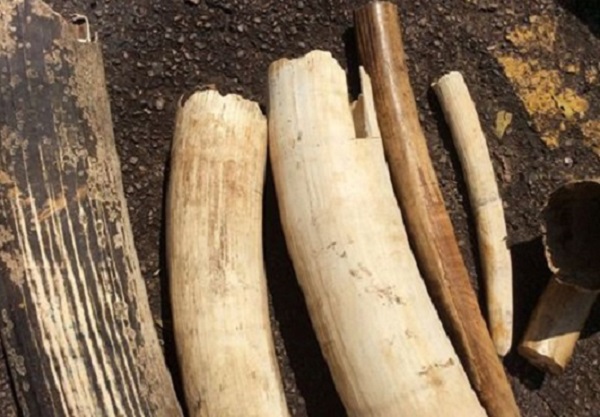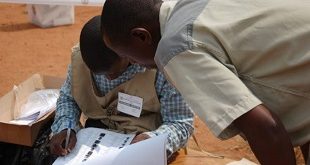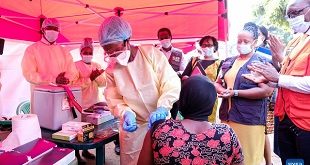
Kampala, Uganda | THE INDEPENDENT | Uganda Wildlife Authority-UWA has recieved over 7,400 kilograms of endangered wildlife species products from the Uganda Revenue Authority-URA.
The products, mostly pieces of ivory were confiscated over time since 2018 and have been undergoing different procedures including tracing their origins, while some were being used as exhibits in court.
Although URA didn’t specify the number of ivory pieces, they weigh 6,601.4 kilograms (6.6 tons), while pangolin scales weigh 766 kilograms. Others are hippo teeth weighing 11.1 kilograms, 20 kilograms of buffalo horns, and 3 kilograms of python skins.
There was also lion skin, a python head, and lion jaws. Charles Tumwesigye, the Deputy Director Field Operations at Uganda Wildlife Authority says over years, the surveillance system has improved especially with the joint cooperation between URA and the Uganda Police Force.
It is not known if all the animals killed for these products were from Uganda, but Tumwesigye says Uganda has been increasingly used as a trade route for the banned or restricted trade in endangered species. He gives an example of the previous confiscation of ivory, which was found by DNA tests, to have originated from stores in Burundi, despite the fact that the country lacks elephants.
Others like pangolin scales have been found to originate from as far as Ivory Coast in West Africa. He says whether or not they are from Uganda, they have to be confiscated and treated according to international laws.
Uganda’s wildlife consists of several endangered species like elephants, rhinos, and pangolins among others, that are supposed to be protected in accordance with the Convention on International Trade in Endangered Species of Wild Fauna and Flora (CITES), signed in Washington, D.C. in 1973.
URA Commissioner for Customs, Abel Kagumire, says that because of their mandate to monitor trade across borders and collect data, they are also mandated to ensure that such products are not traded.
“Wild fauna and flora in their many forms are an irreplaceable part of the natural systems of the earth which must be protected for this and the generations to come; there is an ever-growing value from aesthetic, scientific, cultural, recreational and economic points of view,” he said.
This according to him, calls for interagency and international cooperation to protect certain species against over-exploitation through international trade.
On the fate of the products handed over to UWA, the agency says it cannot just take a decision on what to do with them because they are under international protection.
Tumwesifye says they will seek advice from higher authorities on whether to destroy them, especially the ivory or to store them further, adding that the total ivory confiscated is now more than 2,000 kilograms.
*****
URN
 The Independent Uganda: You get the Truth we Pay the Price
The Independent Uganda: You get the Truth we Pay the Price



